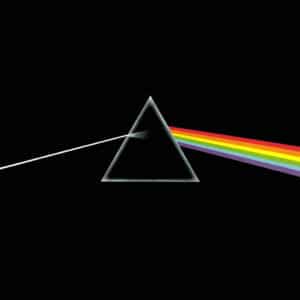

Do you also use the memo app on your phone to remind you of things that you would like to remember or know more about? I do and think of it as my intellectual wish list. Sadly it often remains just a wish list for I seem to only getting around to pursuing a fraction of them.
Here are some I made this past year:
- Doesn’t the word discursive have an air redolent of old English writers such as G.K. Chesterton, Aldous Huxley, Sir Arthur Conan Doyle, C.S. Lewis, or J.R.R. Tolkien who could, on an Autumn day, be leading you on a word journey in which you take many excursions from the main path but never get lost? I love this word as it fits my preference for long-form reading/storytelling/etc.
- From ancient Greece: Heraclites argued that character is destiny. The Greek’s believed that you are born with a certain character stamped into your soul and life was simply the occasion for it to be tested. Yikes! Sobering to an average gent like me as I wonder what test awaits around the corner and whether I can pass it or not. However, whether we pass or fail it still seems better to me than Menander’s concept that whom the gods love die young. Since I have survived my youth, errant and dissolute though it was, does it mean I was not loved by the gods? I guess so!
- My father, now 92, has among the best handwriting I have ever witnessed. It is neat, fluid, and masculine. I envy him this skill as mine is not only bad, it is frankly embarrassing. I have tried though many times to neaten it up but to no avail. Fortunately in modern times I am saved from further embarrassment by the computer screen or keyboard.
- I am very wary of over-optimistic people. While I admire their pluck and refusal to be negative, they often fail to see legitimate problems around them and what needs to be fixed. Not everything in life is “fine” and it will not always “work out for the best.” Sometimes we need to intervene and intervene with vigor—“action this day.”
- I like depending on busy people. They are masters at getting things done. They simply take a glance at their to-do list and get to work.
- Quotes from Otto von Bismarck that never age:
a). “Draw the sword and roll the dice” (you gamble when you go to war)
b). “It is good to learn from one’s mistakes. It is better to learn from other’s”
c). “Pre-emptive war can be an inadvertent way of committing suicide for fear of death.” Reminiscent of the short story written by the French author Maupassant who tells of a man who, the night before a duel, ends up shooting himself as he grapples with the fear of what might happen the next day. - The British novelist L. P. Hartley wrote that “The past is a foreign country. They do things differently there.” The Russians have a saying that “the past is unpredictable.” Of course we all know Orwell’s dictum that “he who controls the past controls the future.” A lot of subtly in all these insights. Who knew that whatever has already happened could be so changeable?
- “In great attempts, it is glorious even to fail” said Cassius Longinus some 2000 years ago. I see what he is trying to get at here but I disagree with him. What is wrong with a boring life if, for example, it is led in the service of others? After all, dying in bed at home of old age is not a bad way to have navigated life. I prefer the subtlety of Samuel Beckett’s maxim “Try again, fail again, and fail better.” To me Beckett speaks to a more prosaic approach to life in which one keeps beavering away even though life is not always glorious.
- When the gods give an individual musical talent they always seem to give it in such abundance. Those recipients of Apollo’s generous graces also seem to be masters of the other arts—acting, oration, etc. What is this spark and why are so many of us, myself first and foremost, not born with a scintilla of it?
- Are you a long-form or short-form person? Do you like the overview style of the USA Today or prefer the 5,000-word essay in The Atlantic? Obviously I write in long form—too long in the estimation of many. But this is not an either/or question. Sometimes we wish for a book or article to never end while sometimes we prefer a recap. Neither is the “right” answer, but we all know from experience that nothing is more painful than when you just want a summary and someone is giving you the unabridged version. If we could only have a sign above us that lights up depending on our mood—abridged or unabridged!
- The Devil’s Dictionary was a slim book written by the American wit and Civil War veteran Ambrose Bierce. I am not sure where the name came from as it has nothing to do with the Devil, but is instead filled with the most mischievous and tongue-in-cheek definitions. He describes love, for instance, as “A temporary insanity cured by marriage.” Another wit, H.L. Mencken, said that “Love is the delusion that one woman/man differs from another!” I would suggest both to you as wit is a rare commodity these days.
- John Wesley, the great English cleric and founder of Methodism, said that in life one should “Do all the good that you can.” Is there any better advice as we travel through life?
- Speaking of words… I recently learned that the inert gas Argon was named by one of its discoverers, Lord Rayleigh, who took the term from argo which means idle (Not to be confused with the ship Argo upon which Jason and the Argonauts sailed to retrieve the Golden Fleece nor the Ben Affleck movie of the same name). This word reminds me of decubation which means to lie down and octivity which means not doing much. Another fave of mine is velleity which is having a wish but not the effort to make it happen. Now, who does not know that sentiment?!? English is chock full of words for the layabout. It really gives the idle equal treatment for it knows that the active and achievers have tons of words for themselves.
- The Japanese have a term mokusatsu which means killing by silence. Who among us then has not died a thousand deaths from the silence being directed our way by a spouse/partner?
- I can only wish that the great poet W.H. Auden were alive today to be a mentor to the Just Average movement. His poem The Average looks at being average in a touching way: W.H. Auden – The Average Well, that is probably enough miscellany for this sitting. Next time maybe a discussion of Max Weber and his idea of charismatic authority.
![]()







0 Comments